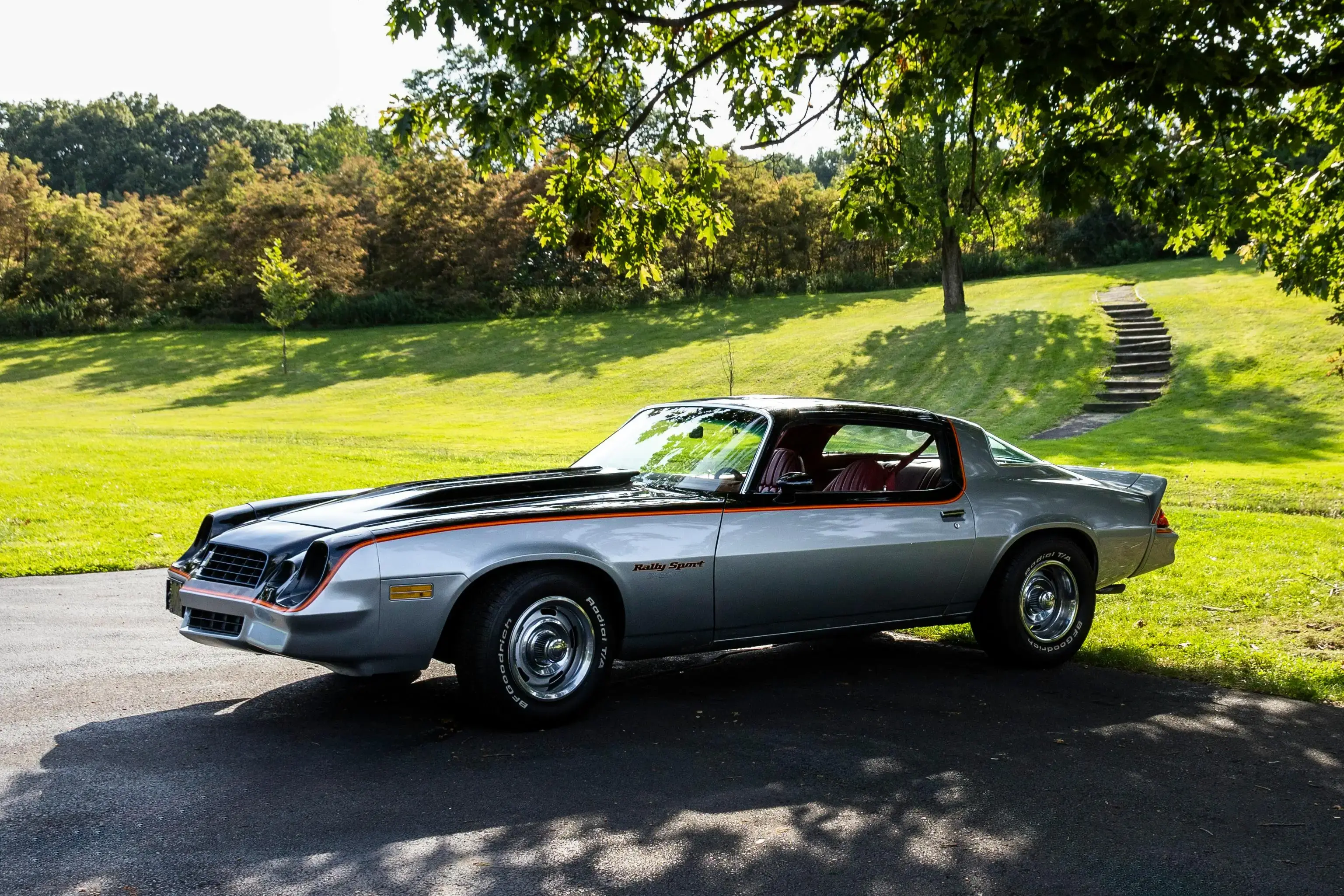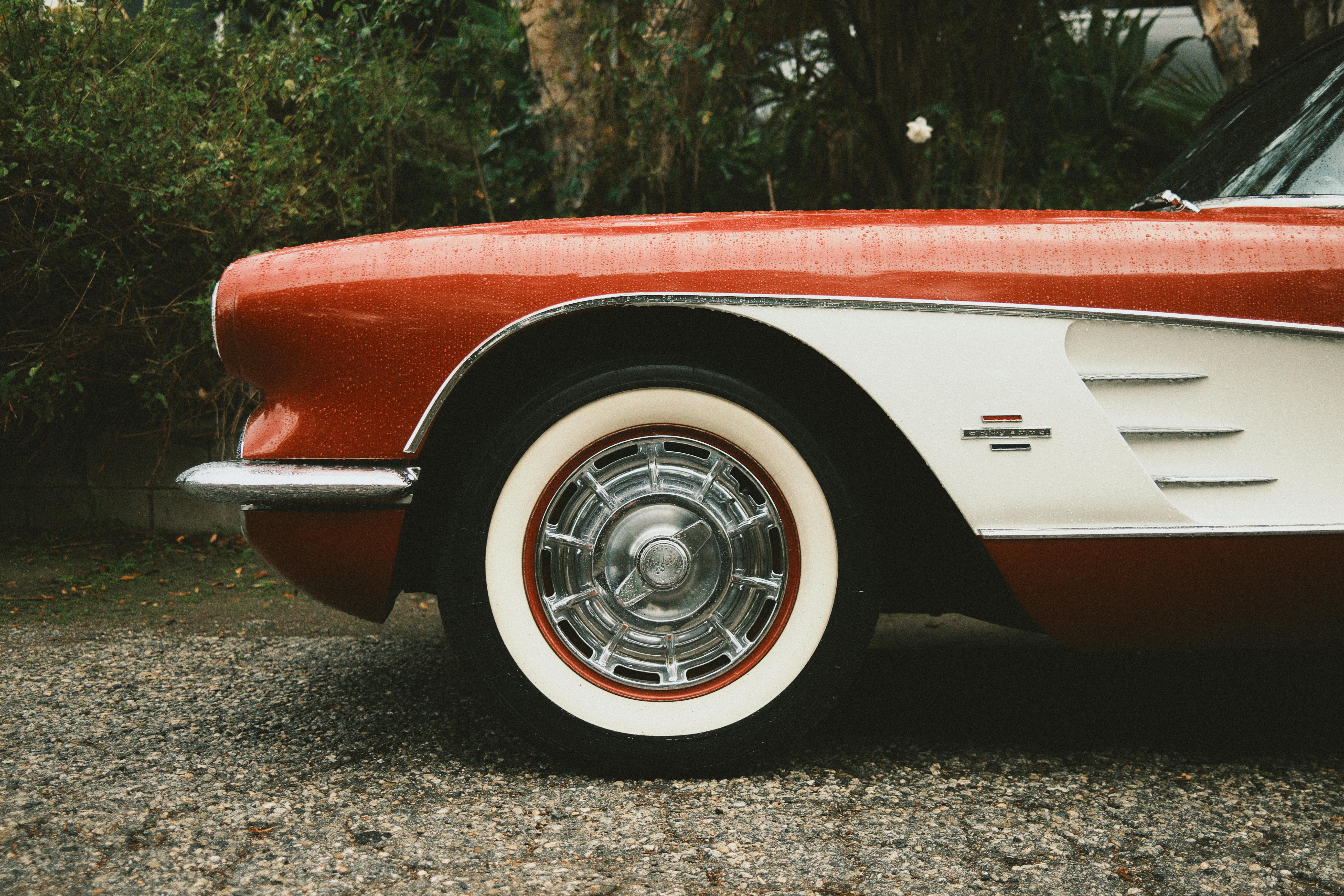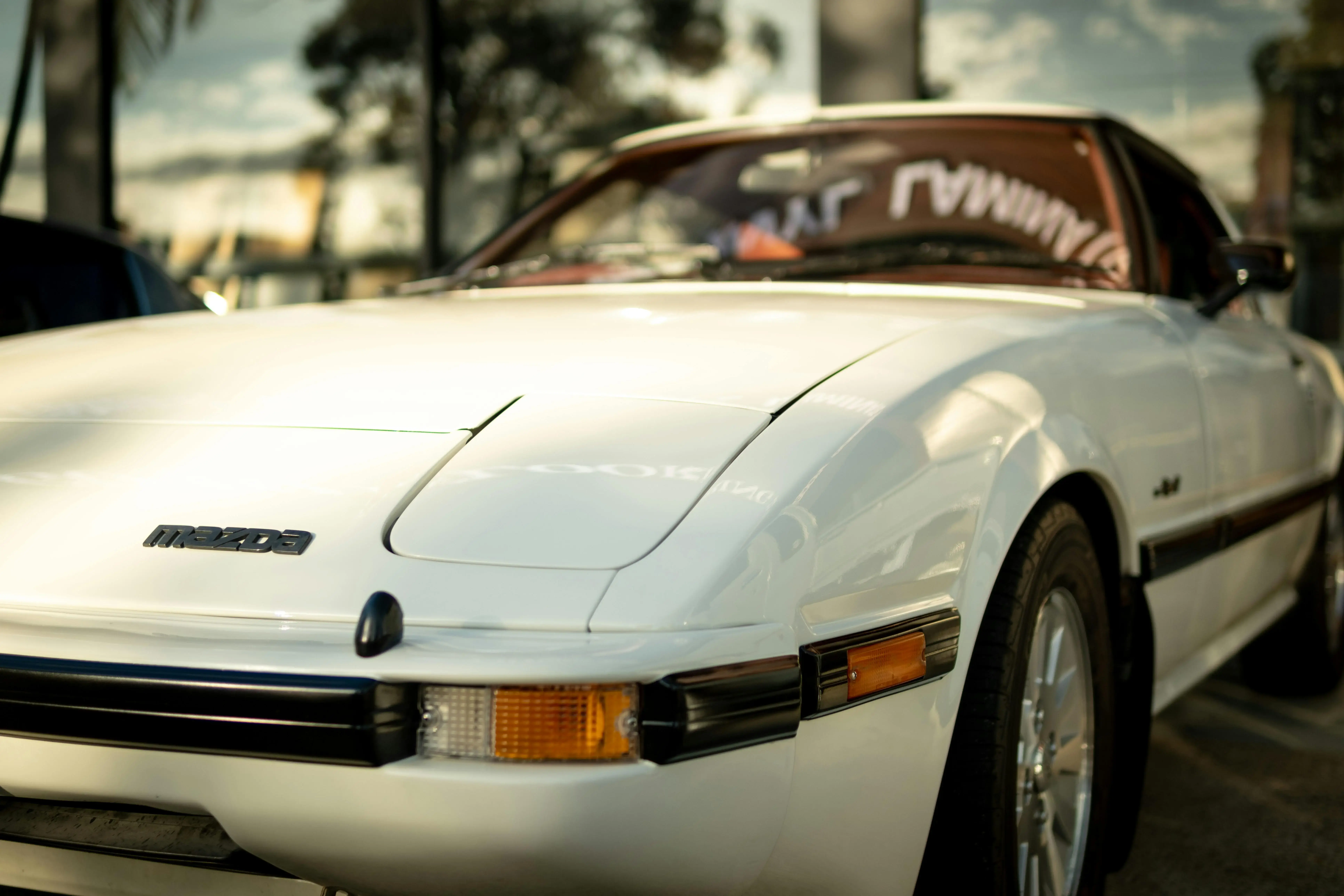How to Prepare Your Classic Car for Shipping to Australia | Complete Guide
Preparing a classic car for shipping to Australia requires meticulous attention to detail, comprehensive documentation, and strict compliance with Australia's rigorous import regulations. From ROVER system approvals and asbestos compliance to biosecurity requirements and proper vehicle preparation, every aspect of the preparation process directly impacts your classic car's successful entry into Australia.
At West Coast Shipping, our expertise in Australia car shipping has guided thousands of classic car owners through Australia's complex preparation requirements, ensuring their prized vehicles meet all regulatory standards while preserving their condition and value throughout the import process.
Understanding Australia's Classic Car Import Requirements
ROVER System Registration and Approval
Australia's Road Vehicle Online Reporting system (ROVER) represents the mandatory first step in preparing any classic car for import, requiring advance registration and comprehensive vehicle documentation.
ROVER Account Setup Process:
-
Identity Verification: Establish your ROVER profile using 100 points of identification, typically requiring passport and driver's license documentation
-
Vehicle Research: Determine your classic car's eligibility for import under Australia's various vehicle import pathways
-
Import Category Selection: Choose the appropriate approval type based on your vehicle's age, modification level, and intended use
-
Application Timing: Begin ROVER registration at least 30-45 days before intended shipping to allow for processing delays
Vehicle Import Approval (VIA) Requirements:
-
Technical Specifications: Provide detailed vehicle information including VIN, engine details, and modification history
-
Compliance Pathway: Select appropriate import category, with vehicles over 25 years potentially qualifying for concessional import under specific conditions
-
Documentation Package: Submit comprehensive ownership history, restoration records, and authenticity certificates
-
Approval Conditions: Review and understand any specific conditions attached to your import approval
Critical Timeline Considerations:
ROVER processing typically requires 5-10 business days for account verification plus additional processing time for vehicle assessment. Delays in ROVER approval can prevent shipping, making early application essential for your complete preparation guide.
Documentation Assembly and Verification
Comprehensive documentation forms the foundation of successful classic car preparation, with missing or incorrect paperwork causing the majority of import complications and delays.
Essential Ownership Documentation:
-
Original Vehicle Title: Provide clear, unencumbered title with no outstanding liens or legal complications
-
Bill of Sale: Detailed purchase documentation including transaction price, vehicle condition, and seller information
-
Ownership History: Complete chain of ownership establishing provenance and authenticity
-
Power of Attorney: If using shipping agents or customs brokers, provide proper legal authorization
Classic Car Specific Documentation:
-
Restoration Records: Comprehensive documentation of all restoration work, including receipts for parts, labor, and professional services
-
Authenticity Certificates: Documentation from recognized classic car organizations verifying originality and historical significance
-
Professional Appraisals: Current market valuations from certified appraisers familiar with your specific make and model are helpful for customs purposes and coverage arrangements, though not required by ABF unless there's a value dispute
-
Modification Documentation: Detailed records of any non-original parts, upgrades, or period-appropriate modifications
Export Clearance Requirements:
-
Export Declaration: Proper filing with U.S. Customs through the Automated Export System (AES)
-
Shipping Documentation: Bill of lading and container or vessel booking confirmations
-
Compliance Certificates: Any required emissions or safety certifications for classic vehicle exports
Asbestos Testing and Compliance Strategy
Understanding Australia's Zero-Tolerance Asbestos Policy
Australia maintains absolute prohibition on asbestos importation, making compliance verification critical for all classic cars, particularly those manufactured before the mid-1990s when asbestos use was common in automotive components.
Risk Assessment Approach:
-
Manufacturer Research: Investigate when your vehicle's manufacturer ceased using asbestos in production, typically occurring in the mid-1990s for most manufacturers
-
Component Analysis: Focus on high-risk components including brake pads, clutch assemblies, gaskets, heat shields, and insulation materials
-
Service History Review: Document all replacement parts with evidence that modern replacements are asbestos-free
-
Documentation Strategy: Compile manufacturer specifications and service records proving components are asbestos-free
Professional Testing When Required:
-
NATA-Approved Laboratories: When testing is necessary, engage National Association of Testing Authorities accredited facilities that meet Australian Border Force standards
-
Component Sampling: Professional sampling of suspect materials by qualified technicians with appropriate credentials
-
Comprehensive Analysis: Testing protocols that examine all potentially asbestos-containing materials throughout the vehicle
-
Certification Requirements: Official asbestos-free certification formatted to Australian Border Force specifications
Compliance Cost Considerations:
While many classic vehicles avoid major costs through proactive documentation or component replacement, asbestos remediation costs can range from $10,000-$25,000 if asbestos is discovered and requires professional removal. Thorough pre-shipping assessment and documentation often prevents these significant expenses.
Pre-Shipping Asbestos Preparation
Strategic preparation minimizes asbestos-related delays and ensures smooth customs clearance for your classic car import.
Documentation-First Strategy:
-
Manufacturer Specifications: Obtain official documentation proving when asbestos use ceased in your vehicle's production
-
Parts Replacement Records: Document any brake, clutch, or gasket replacements with modern asbestos-free components
-
Professional Assessment: Engage qualified professionals for pre-shipping evaluation of potential asbestos risks
-
Proactive Replacement: Consider replacing high-risk components with certified asbestos-free alternatives before shipping
Border Force Interaction Preparation:
-
Random Inspection Readiness: Prepare for potential Australian Border Force inspection regardless of documentation quality
-
Professional Representation: Arrange experienced customs agents familiar with asbestos compliance requirements
-
Cost Contingency: Budget for potential testing and remediation costs if asbestos is discovered during inspection
-
Timeline Flexibility: Allow additional clearance time for potential asbestos-related processing delays
Vehicle Cleaning and Biosecurity Compliance
Australia's Strict Biosecurity Requirements
Australia's biosecurity regulations demand comprehensive vehicle cleaning to prevent introduction of foreign pests, diseases, and invasive species that could threaten the country's unique ecosystem.
Steam Cleaning Requirements:
-
Professional Steam Cleaning: Thorough steam cleaning of entire vehicle interior and exterior, including undercarriage and engine bay
-
Dirt and Debris Removal: Complete elimination of all foreign soil, plant material, seeds, and organic matter
-
Undercarriage Attention: Particular focus on wheel wells, suspension components, and chassis areas where contamination accumulates
-
Interior Deep Cleaning: Comprehensive cleaning of carpets, upholstery, air vents, and all interior surfaces
High-Risk Area Focus:
-
Wheel Wells and Tires: Complete removal of embedded soil, plant matter, and road debris
-
Air Intake Systems: Cleaning of air filter housing and intake components
-
Exhaust System: Inspection and cleaning of exhaust outlets and surrounding areas
-
Convertible Mechanisms: Thorough cleaning of soft-top mechanisms and storage areas
Documentation and Photography:
-
Before/After Photography: Document cleaning process with comprehensive photographs for customs presentation
-
Professional Cleaning Certificates: While not mandatory, obtain certificates from qualified cleaning facilities when available as they are strongly recommended and often requested by DAFF during inspection
-
Cleaning Product Documentation: Record cleaning products used to demonstrate biosecurity compliance
-
Inspector Access: Ensure all vehicle areas remain accessible for Australian quarantine inspection
Post-Arrival Quarantine Inspection Preparation
Mandatory quarantine inspection awaits all imported vehicles, with proper preparation minimizing delays and additional cleaning charges.
Inspection Readiness:
-
Complete Access: Ensure all vehicle compartments, storage areas, and mechanical components remain accessible for inspection
-
Key Management: Provide working keys for all locks, ignition, and security systems
-
Alarm System Preparation: Disable aftermarket alarm systems that could interfere with inspection procedures
-
Documentation Availability: Maintain all cleaning and preparation records for quarantine officer review
Cost Management:
-
Pre-Cleaning Investment: Professional pre-shipping cleaning typically costs $200-500 but prevents much higher post-arrival cleaning charges
-
Quarantine Cleaning Fees: Budget $300-800 for potential additional cleaning if initial standards aren't met
-
Inspection Delays: Factor potential 2-5 day delays for quarantine processing into shipping timeline
-
Professional Coordination: Engage experienced customs agents to manage quarantine inspection process
Classic Car Specific Preparation Requirements
Mechanical and Safety Preparation
Classic cars require specialized mechanical preparation addressing unique vulnerabilities and operational requirements for safe shipping and customs processing.
Fuel System Management:
-
Fuel Level Requirements: Reduce fuel to less than 1/4 tank capacity while maintaining sufficient fuel for loading and unloading operations
-
Fuel Quality Assessment: Ensure fuel is fresh and free from contamination that could cause mechanical issues during handling
-
Fuel System Inspection: Check for leaks, damaged fuel lines, or other issues that could create safety hazards
-
Vapor Management: Ensure proper fuel cap seal to prevent vapor escape during transit
Battery and Electrical Systems:
-
Battery Disconnection: Disconnect battery terminals and secure battery to prevent movement and electrical issues
-
Electrical System Check: Verify proper operation of lights, horn, and other systems required for port handling
-
Aftermarket Electronics: Remove or properly secure aftermarket electronics that could be damaged during shipping
-
Alarm System Management: Disable complex alarm systems that could activate during handling procedures
Mechanical Condition Verification:
-
Operational Requirements: Ensure classic car can start, move, and brake independently for loading procedures
-
Tire Condition: Verify proper tire pressure and adequate tread depth for safe vehicle movement
-
Brake System Function: Test parking brake operation and general braking system condition
-
Steering and Suspension: Confirm proper steering operation and suspension integrity for safe handling
Classic Car Protection and Preservation
Valuable classic cars require additional protection measures during the extended shipping process to preserve condition and prevent damage.
Physical Protection Measures:
-
Paint Protection: Apply protective film or quality car covers to prevent scratches and environmental damage
-
Chrome and Trim Protection: Cover vulnerable chrome components and decorative trim with appropriate protective materials
-
Interior Protection: Use breathable covers for seats, dashboard, and delicate interior components
-
Convertible Top Security: Ensure soft tops are properly secured and weatherproofed for ocean transit
Documentation and Condition Recording:
-
Comprehensive Photography: Document every aspect of your classic car with high-resolution photos from multiple angles
-
Condition Report: Create detailed written assessment of paint condition, interior state, and any existing damage
-
Serial Number Documentation: Photograph and record VIN, engine numbers, and other identifying marks
-
Modification Documentation: Record all non-original parts, upgrades, or restoration work with supporting documentation
Value Protection Strategies:
-
Professional Appraisal: Obtain current market valuation from certified classic car appraiser for coverage and customs purposes
-
Agreed Value Coverage: Arrange appropriate marine transit protection reflecting actual classic car value
-
Professional Handling: Specify requirements for experienced classic car handling throughout shipping process
-
Chain of Custody: Maintain detailed records of all handling, storage, and transport activities
Final Pre-Shipping Checklist and Timeline
60-90 Days Before Shipping
Early preparation prevents delays and ensures compliance with all Australian import requirements for classic cars.
Initial Planning Phase:
-
ROVER Account Creation: Establish ROVER profile and begin vehicle import approval process
-
Documentation Collection: Gather all ownership, restoration, and authenticity documentation
-
Professional Consultation: Engage experienced Australia import specialists for guidance
-
Shipping Method Selection: Choose between container and RoRo based on vehicle size and protection needs
Research and Planning:
-
Import Pathway Research: Determine optimal import category for your classic car's specifications
-
Cost Planning: Budget for shipping, duties, compliance, and potential additional requirements
-
Service Provider Selection: Choose experienced shipping company with Australian import expertise, such as West Coast Shipping.
-
Timeline Development: Create comprehensive timeline coordinating all preparation requirements
30-45 Days Before Shipping
Mid-term preparation focuses on compliance and documentation completion for smooth shipping execution.
Compliance Preparation:
-
Asbestos Assessment: Complete asbestos risk evaluation and arrange testing if required
-
Professional Cleaning: Schedule comprehensive steam cleaning with biosecurity-compliant facility
-
Mechanical Preparation: Complete fuel, battery, and mechanical preparation requirements
-
Documentation Finalization: Complete all export documentation and customs requirements
Shipping Coordination:
-
Container Booking: Secure container space or RoRo booking with preferred departure dates
-
Port Selection: Finalize departure and arrival port selections based on logistics and cost considerations
-
Agent Coordination: Engage Australian customs agents and logistics coordinators
-
Coverage Arrangements: Finalize marine transit protection and customs bond requirements
Final Week Preparation
Last-minute preparation ensures everything is ready for smooth vehicle pickup and shipping execution.
Final Vehicle Preparation:
-
Condition Documentation: Complete final photography and condition documentation
-
Cleaning Verification: Confirm all biosecurity cleaning requirements are complete and documented
-
Mechanical Check: Final verification of fuel levels, battery disconnection, and operational readiness
-
Personal Items Removal: Remove all personal belongings, aftermarket electronics, and loose items
Documentation and Coordination:
-
Document Package Assembly: Compile complete documentation package for shipping company and customs agents
-
Emergency Contacts: Establish communication protocols with all service providers
-
Timeline Confirmation: Confirm pickup, shipping, and arrival schedules with all parties
-
Contingency Planning: Prepare backup plans for potential delays or complications
For comprehensive guidance on all aspects of classic car shipping to Australia, including shipping methods, port selection, and arrival procedures, consult our complete Classic Car Shipping To Australia Guide.
Successfully preparing a classic car for shipping to Australia requires comprehensive planning, meticulous documentation, and strict compliance with multiple regulatory requirements. From ROVER system approval and asbestos compliance to biosecurity cleaning and proper mechanical preparation, each element contributes to smooth customs clearance and successful vehicle importation.
The complexity of Australia's import requirements makes professional guidance invaluable, particularly for high-value classic cars where mistakes can result in significant delays, additional costs, or even vehicle rejection. Proper preparation not only ensures regulatory compliance but also protects your classic car's condition and value throughout the shipping process.
Early preparation, typically beginning 60-90 days before intended shipping, provides adequate time for ROVER approval, compliance verification, and professional preparation services. This investment in proper preparation prevents costly delays and ensures your classic car arrives safely in Australia ready for registration and enjoyment.
At West Coast Shipping, our comprehensive Australia shipping services provide expert guidance through every aspect of classic car preparation, from initial ROVER registration through final delivery, ensuring your valuable investment receives the professional attention it deserves.
Calculate Your Classic Car Shipping Costs
Ready to begin the preparation process for shipping your classic car to Australia? Contact West Coast Shipping for expert guidance on ROVER system registration, asbestos compliance, biosecurity requirements, and comprehensive preparation services ensuring your classic car meets all Australian import standards while preserving its condition and value.
You May Also Like
These Related Stories

RoRo vs Container Shipping for Classic Cars to Australia

Top Ports in Australia for Classic Car Shipping | Complete Port Guide

-093789-edited.png?width=220&height=79&name=wcs_final_logo_(1)-093789-edited.png)
